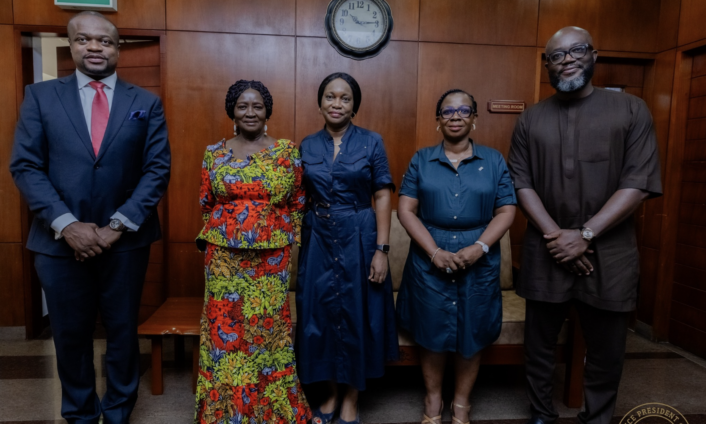
Audio By Carbonatix
Professor Peter Quartey, Director of the Institute of Statistical, Social, and Economic Research (ISSER), has called for the leveraging of existing banking infrastructure to establish women’s desks or units to address women’s financial concerns.
He emphasised the need for pragmatic solutions to address the challenges faced by women entrepreneurs in accessing credit and financial services.
The Director made these remarks at ISSER’s budget review, held at the Institute in Accra.
His recommendations come at a time when the government has allocated GHS 51 million for the proposed Women’s Bank in the 2025 budget and financial statement.
He stated that the feasibility of setting up a new bank with the proposed allocation of GHS 51 million cedis was insufficient to meet the capital requirements for a fully functional bank.
“The idea of empowering women through dedicated funding is laudable, but establishing a new bank may not be the most effective way to achieve this goal,” he said.
“Instead, we should consider creating dedicated women’s desks or units within existing banks, which already have extensive branch networks across the country,” he said.
He highlighted the success of similar models in other countries, where women-focused financial services are integrated into mainstream banking systems.
“By leveraging the existing infrastructure of banks like Ghana Commercial Bank, which boasts over 87 branches nationwide, the government can ensure wider accessibility and cost-effectiveness,” he said.
Professor Quartey also stressed the importance of addressing systemic issues such as partisanship and inefficiencies in the selection and distribution of funds.
“We need a robust system to identify beneficiaries and ensure that resources are allocated transparently and equitably,” he said.
Professor Quartey suggested that the allocated funds would be better utilised in strengthening existing financial institutions to offer tailored services for women entrepreneurs.
The Director said that empowering women has a multiplier effect on families and communities.
“Studies have shown that when women are economically empowered, the benefits extend beyond the individual to the entire household. Therefore, we must ensure that our interventions are sustainable and impactful,” he said.
Latest Stories
-
Hindsight: Want-away Zito’s faults shield Nana Apinkrah’s inept IMC
9 minutes -
BullGod launches ‘Bright Walls, Better Minds’ project to revamp police cells
12 minutes -
Ernest Chemists launches 40th anniversary
15 minutes -
Mahama urges newly sworn-in envoys to put Ghana’s unity and national interest first
17 minutes -
We’ll take our wives and children to picket Finance Ministry if… – Former MMDCE warns
21 minutes -
Nkrumah Beyond Myth: Power, promise, and the unfinished argument of nation
31 minutes -
Traders, residents reject proposed 24-hour market site at Oseikojokrom in Bia West
33 minutes -
Airport Renaming Debate: K.T. Hammond tells NDC to dissolve if it truly opposes coups
36 minutes -
African governments must take practical steps to retain skilled health workers – President Mahama
50 minutes -
A Tax for Galamsey: Amansie DCE should be sacked—Kpebu
51 minutes -
St. Monica’s celebrates 80 years, pushes for ICT and library development
51 minutes -
Bono East Fire Commander engages Tanoso volunteers, donates protective gear
53 minutes -
VALCO workers demand CEO’s removal, alleging mismanagement and ‘silent sale’
1 hour -
NPP Ashanti region caucus criticises scaling down of Suame Interchange Project
1 hour -
Baba Jamal: A political career shaped by ballots, court battles and controversy — From Akwatia to Ayawaso East
1 hour

